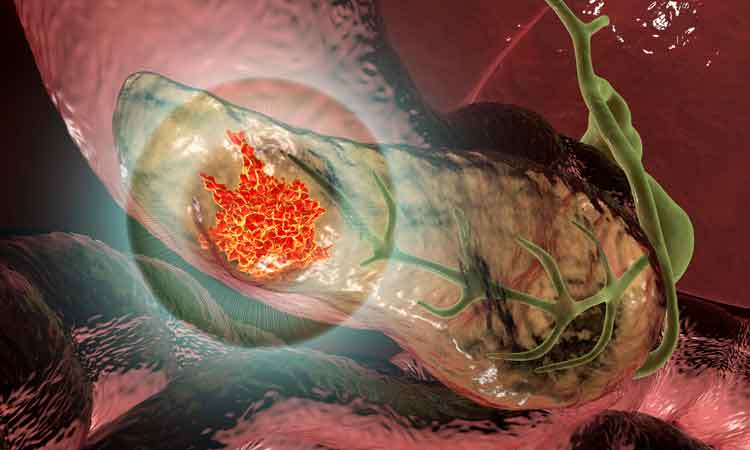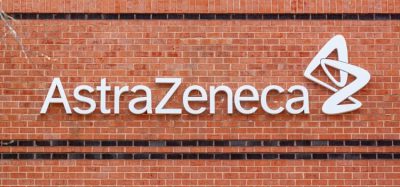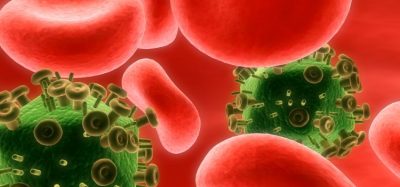Individualised mRNA vaccine shows promise in pancreatic cancer patients
Posted: 8 June 2022 | Sarah Wills (European Pharmaceutical Review) | 1 comment
Phase I study shows that mRNA-based individualised neoantigen specific immunotherapy (iNeST) vaccines can be used to stimulate T cells to recognise neoantigens in pancreatic cancer patients.


BioNTech has announced initial data from an ongoing investigator-initiated first-in-human Phase I study evaluating the safety and tolerability of the mRNA-based individualised neoantigen specific immunotherapy (iNeST) autogene cevumeran (also known as BNT122, RO7198457) in combination with anti-PD-L1 immune checkpoint inhibitor atezolizumab and chemotherapy in patients with resected pancreatic ductal adenocarcinoma (PDAC).
Feasibility of the process of profiling each patient’s tumour to inform individualised vaccine design and on-demand manufacturing of iNeST in a clinically relevant timeframe was confirmed. The preliminary results showed a favourable safety profile, as well as encouraging signs of clinical activity.
Autogene cevumeran is the lead candidate from BioNTech’s iNeST platform, which is jointly developed together with Genentech, a member of the Roche Group, in multiple solid tumour indications.
The data include a total of 19 patients who underwent surgery and received atezolizumab. Of these patients, 16 (84 percent) received autogene cevumeran at 9.4 weeks after surgery. The preliminary data readout from these 16 vaccinated patients revealed that autogene cevumeran in combination with atezolizumab was well-tolerated. Only one of 16 patients (six percent) developed a vaccine-related Grade 3 fever and hypertension, no other Grade 3 or higher adverse events were observed.
In addition, the treatment induced de-novo, neoantigen-specific T cell response in half of these patients, from undetectable levels to large fractions of all blood T cells (median 2.9 percent). At an early median follow-up of 18 months, the eight patients with de-novo immune response had a significantly longer recurrence-free survival (RFS) as compared to the eight without vaccine-induced immune responses (median not reached versus 13.4 months, respectively).
Based on these data, BioNTech and Genentech are planning a randomised study to further evaluate the efficacy and safety of autogene cevumeran in combination with atezolizumab and chemotherapy in patients with resected PDAC.
“With only under five percent of patients responding to current treatment options, PDAC is one of the highest unmet medical need cancers,” commented Professor Dr Özlem Türeci, Co-Founder and Chief Medical Officer at BioNTech. “We are committed to take up this challenge by leveraging our long-standing research in cancer vaccinology and are trying to break new ground in the treatment of such hard-to-treat tumours.”
The investigator-initiated, single-center, Phase I trial (NCT04161755) was designed to evaluate the treatment of the companies’ individualised immunotherapy candidate autogene cevumeran in combination with the anti-PDL-1 immune checkpoint inhibitor atezolizumab as an add-on to the standard-of-care regimen with adjuvant chemotherapy mFOLFIRINOX in patients with resected PDACs. The primary objective of the study is to assess the safety. Secondary objectives include the efficacy of the treatment measured as the 18-month RFS, the immunogenicity as well as the feasibility of the treatment regimen.
“Our research, and now the results from this study, show that the immune system can recognise neoantigens in pancreatic cancer, and that we can use mRNA vaccines to stimulate T cells to recognise neoantigens in pancreatic cancer patients,” stated Dr Vinod Balachandran, surgeon-scientist at Memorial Sloan Kettering Cancer Center and Principal Investigator of the study. “We now look forward to further investigating these results in a larger randomised trial.”
Related topics
Anti-Cancer Therapeutics, Clinical Trials, Drug Development, Drug Safety, Immunotherapy, mRNA, Research & Development (R&D), t-cells, Vaccine Technology, Vaccines










We have monitored the immune response of a patient diagnosed with metatsatsized pancreatic cancer to his a patientindividualized anti-tumor peptide vaccine and found that this immunotherapeutic approach is highly efficient.
Please read this article:
Immune monitoring and TCR sequencing of CD4 T cells in a long term responsive patient with metastasized pancreatic ductal carcinoma treated with individualized, neoepitope-derived multipeptide vaccines: a case report
Katja Sonntag, Hisayoshi Hashimoto, Matthias Eyrich, Moritz Menzel, Max Schubach, Dennis Döcker, Florian Battke, Carolina Courage, Helmut Lambertz, Rupert Handgretinger, Saskia Biskup, Karin Schilbach*
J Transl Med. 2018 Feb 6;16(1):23.
PMID: 29409514 PMCID: PMC5801813 DOI: 10.1186/s12967-018-1382-1
*Childrens Hospital University of Tuebingen, Germany, 049-7071-2984084
Abstract
Background: Cancer vaccines can effectively establish clinically relevant tumor immunity. Novel sequencing approaches rapidly identify the mutational fingerprint of tumors, thus allowing to generate personalized tumor vaccines within a few weeks from diagnosis. Here, we report the case of a 62-year-old patient receiving a four-peptide-vaccine targeting the two sole mutations of his pancreatic tumor, identified via exome sequencing.
Methods: Vaccination started during chemotherapy in second complete remission and continued monthly thereafter. We tracked IFN-γ+ T cell responses against vaccine peptides in peripheral blood after 12, 17 and 34 vaccinations by analyzing T-cell receptor (TCR) repertoire diversity and epitope-binding regions of peptide-reactive T-cell lines and clones. By restricting analysis to sorted IFN-γ-producing T cells we could assure epitope-specificity, functionality, and TH1 polarization.
Results: A peptide-specific T-cell response against three of the four vaccine peptides could be detected sequentially. Molecular TCR analysis revealed a broad vaccine-reactive TCR repertoire with clones of discernible specificity. Four identical or convergent TCR sequences could be identified at more than one time-point, indicating timely persistence of vaccine-reactive T cells. One dominant TCR expressing a dual TCRVα chain could be found in three T-cell clones. The observed T-cell responses possibly contributed to clinical outcome: The patient is alive 6 years after initial diagnosis and in complete remission for 4 years now.
Conclusions: Therapeutic vaccination with a neoantigen-derived four-peptide vaccine resulted in a diverse and long-lasting immune response against these targets which was associated with prolonged clinical remission. These data warrant confirmation in a larger proof-of concept clinical trial.
Keywords: CDR3 sequences; Neoepitope-derived peptides; Pancreatic carcinoma; T-cell responses; Therapeutic vaccines.